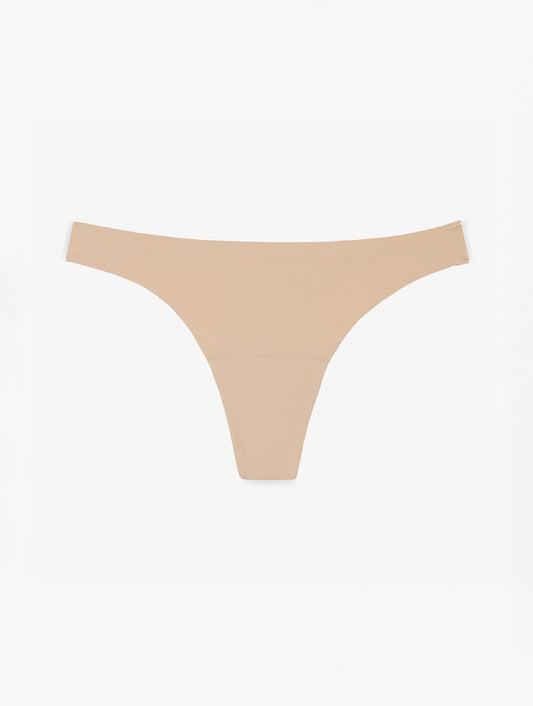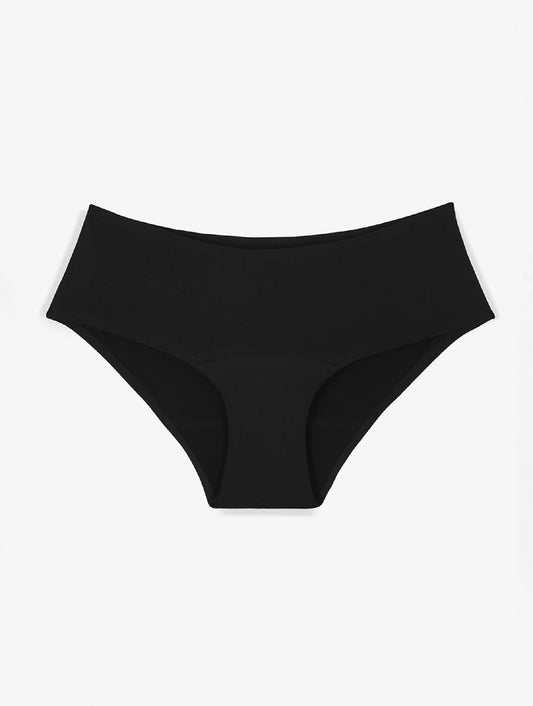Vaginal dryness: how to treat it naturally?
Vaginal dryness is a sexual disorder that is often difficult to live with, or even to express. Many women experience it as a complex or devalue themselves. Others see it as a sign of lack of desire or love towards their partner. And some don't dare talk about it with their gynecologist. However, intimate dryness is a common condition that affects 25% of premenopausal women, and 50 of those who are. Fortunately, there are many solutions to treat it!

Aquila cotton menstrual panties

Ara cotton menstrual panties
What exactly is vaginal dryness?
Vaginal dryness is a disruption of the vaginal flora and lubricating glands, which causes a lack of hydration of the vaginal mucous membranes. It occurs when the cervical mucus and uterine mucosa change, losing their ability to lubricate and self-clean. This phenomenon causes irritation, itching, or even pain during sexual intercourse.
But why does this happen to me?
Intimate dryness can have several causes.
The most common is menopause , which induces a profound hormonal change including a drop in estrogen playing a major role in vaginal lubrication.
But other factors can have an influence on lubrication, at any age:
- hormonal variations during the menstrual cycle
- pregnancy and breastfeeding
- an episode of stress or fatigue
- alcohol and tobacco, which atrophy the vessels of the sexual organs (in women this reduces lubrication)
- certain medications (antidepressants, chemotherapy or antibiotics which disrupt the vaginal flora)
- douching, chlorine, synthetic underwear
- genital irritation such as mycosis
- a poor diet
What are the consequences of vaginal dryness?
In addition to irritation, and unfortunately pain during sexual intercourse, dryness of the vagina can also lead to greater vulnerability to gynecological infections. This has repercussions on a daily basis in well-being, self-image, but also in the sexual harmony of the couple.
However, be careful: it is necessary to differentiate between vaginal dryness, due to a hormonal change, unbalanced flora, stress or irritation, and lack of lubrication. The latter is only linked to desire or even to a disorder of sexual arousal. It is quite possible to find yourself dry occasionally during intercourse without suffering from vaginal dryness strictly speaking. If this is ruining your sex life, you will have to seek solutions with your partner or with a specialist in the matter! But to start, boost your libido a little …
What solutions against intimate dryness?
To compensate for the reduction in natural lubricant in the vagina, there are hormonal treatments, and even laser surgeries. But we may also want to leave our body alone and choose natural solutions!
- pamper your vaginal flora with probiotics
- adapt your intimate hygiene: use a soap with a pH between 4 and 8 and wear underwear made of natural fibers (if you are still in period, prefer menstrual panties at the time T)
- twice a week, use healing hyaluronic acid ovules
- once a week, supplement with a capsule of evening primrose oil to use as an egg
- take regular courses of borage oil orally, which promotes natural hydration of the skin and mucous membranes
- eat more fatty fish (salmon, herring, sardines, mackerel, etc.), avocados or nuts: their fatty acids rehydrate our mucous membranes
- go for spinach and green cabbage which improve blood circulation and fight against intimate dryness (also: reduce tobacco if you smoke)
- regularly massage your lower abdomen with an estrogen-like essential oil (which mimics the action of estrogen) such as sage essential oil, also known for its anti- painful period properties
- apply a vegetable oil regularly (jojoba, sweet almond, etc.) to moisturize your mucous membranes (be careful never before having sex with a condom: this could make it porous)
- use suitable lubricants during sexual intercourse to avoid irritation, for example 100% organic aloe vera gel
- after menopause, take care of foreplay during lovemaking and go gently
Finally, never hesitate to talk about it with your partner and your gynecologist even if you are not sure of the symptoms: there is nothing to be ashamed of, vaginal dryness is a natural phenomenon. We also too often forget that menopause induces a hormonal change as strong and disturbing as for our teenagers!
By Elise













































